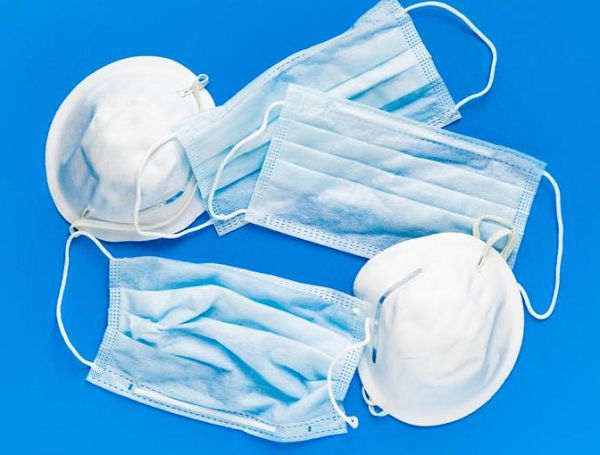
COVID-19: Medical Women's Association of Ghana to produce one million masks
The Medical Women's Association of Ghana (MWAG) seeks to produce one million masks locally to help combat the spread of the novel coronavirus (COVID-19) in Ghana.
The initiative which is under a campaign name “Mask Out COVID-19” is aimed at producing reusable masks called “Do-It-Yourself (DIY)” with local materials for distribution to vulnerable populations in the country.
The association believes that the production of the DIY masks made of two layers of cloth and a non-woven interface will help filter likely pathogens.
According to the Medical Women's Association of Ghana, although by bodies like the World Health Organisation (WHO) have not recommended the routine use of the masks in the community setting, there is growing evidence coming from countries such as China, Singapore, South Korea, Taiwan and the Czech Republic that the routine and widespread use of masks by all may help reduce the spread of the disease.
The masks would be produced by local seamstresses and tailors using some given specifications and recommendations to make them fit for purpose.
The 'Mask Out COVID-19' campaign, which is expected to last for 21 days is being coordinated by Dr. Betty Bankah, Dr. Dzifa Dey and Dr. Yacoba Atiase.
The project will be launched on Wednesday, April 8, 2020.
The association in a proposal said many of the masks would be distributed for free while capable people would pay a token fee to enable the association to cater for the cost of production.
It noted with concern that many people in the country were currently reusing surgical masks and that poor handling and re-use of such surgical masks that were supposed to be disposable rather increased their risk of infections.
The association is of the view that the DIY masks would potentially reduce spread of COVID-19 by reducing viral droplets and load that may lead to spread if people were not masked.
It believes that the DIY would offer a psychological boost to the public that they had a level of protection and also serve as a reminder to everyone that the disease exists and for them to do their best to protect themselves and others.
Dr Bankah in an interview said the production and distribution of the DIY would help to preserve surgical and N95 masks for health workers.
She said the DIY would be a cheap effective way of bringing all on board to do something as individuals to help the nation to reduce the spread if COVID-19.
Similarly, she said, the initiative would conserve much needed Personal Protective Equipment (PPE) for health workers to enable them fight COVID-19 and save lives.
For her part, Dr Dey, explained that everyone wearing a mask reduced the stigma that may be associated with asking only those infected to wear masks, and that the initiative would also serve as a boost for the local textile and fashion industry.
The Project leads, have therefore, called on all, particularly the textile industries and the seamstress and tailors associations to support the initiative.
Similarly, they are calling on financial institutions and other benevolent associations to support them financially to be able to meet their target.
